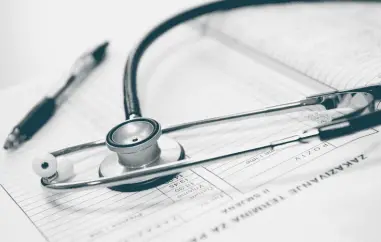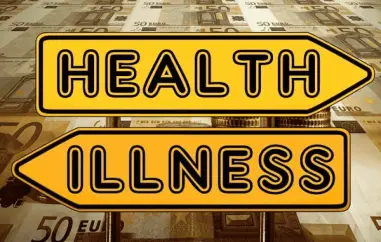The Importance of Regular Medical Check-ups: Prioritizing Preventive Healthcare
 In the hustle and bustle of daily life, it's easy to overlook our health until a problem arises. However, prioritizing regular medical check-ups is essential for maintaining optimal health and well-being. From early detection of potential health issues to preventive screenings and health assessments, medical check-ups play a crucial role in safeguarding our health and longevity. Here, we delve into the importance of regular medical check-ups, the components of a comprehensive check-up, and tips for scheduling and maximizing the benefits of preventive healthcare.
In the hustle and bustle of daily life, it's easy to overlook our health until a problem arises. However, prioritizing regular medical check-ups is essential for maintaining optimal health and well-being. From early detection of potential health issues to preventive screenings and health assessments, medical check-ups play a crucial role in safeguarding our health and longevity. Here, we delve into the importance of regular medical check-ups, the components of a comprehensive check-up, and tips for scheduling and maximizing the benefits of preventive healthcare.
Regular medical check-ups are a cornerstone of preventive healthcare, allowing healthcare providers to monitor your health status, identify risk factors, and detect potential health problems before they escalate. By addressing health concerns early on, medical check-ups can help prevent chronic diseases, improve treatment outcomes, and enhance overall quality of life.
Additionally, medical check-ups provide an opportunity for healthcare providers to offer personalized health guidance, discuss lifestyle modifications, and address any questions or concerns you may have about your health. Moreover, routine check-ups can serve as a valuable opportunity to build a trusting relationship with your healthcare provider, fostering open communication and collaboration in managing your health.
A comprehensive medical check-up typically includes a range of assessments, screenings, and evaluations tailored to your age, gender, medical history, and individual risk factors. While specific components may vary based on individual needs, common elements of a comprehensive check-up may include:
-
Medical History Review: Your healthcare provider will review your medical history, including any chronic conditions, past surgeries, medications, allergies, and family medical history, to gain a comprehensive understanding of your health status and potential risk factors.
-
Physical Examination: A thorough physical examination will be conducted to assess vital signs such as blood pressure, heart rate, respiratory rate, and body mass index (BMI). Your healthcare provider may also examine various body systems, including the heart, lungs, abdomen, and skin, to detect any signs of abnormalities or underlying health issues.
-
Laboratory Tests: Depending on your age, gender, and risk factors, your healthcare provider may recommend a series of laboratory tests to assess your overall health status and screen for common health conditions. These may include blood tests to measure cholesterol levels, blood sugar levels, kidney function, liver function, and markers of inflammation or infection.
-
Screenings and Vaccinations: Routine screenings and vaccinations are essential components of preventive healthcare, helping to detect and prevent a range of diseases and conditions. Common screenings may include mammograms, Pap smears, colonoscopies, bone density scans, prostate exams, and immunizations against influenza, pneumonia, and other vaccine-preventable diseases.
-
Counseling and Health Education: Your healthcare provider may offer personalized counseling and health education to address specific health concerns, promote healthy lifestyle behaviors, and provide guidance on disease prevention and management. Topics may include nutrition, physical activity, smoking cessation, stress management, and mental health support.
Tips for Scheduling and Maximizing the Benefits of Preventive Healthcare:
-
Schedule Regular Check-ups: Aim to schedule regular medical check-ups with your healthcare provider based on your age, gender, and individual risk factors. Follow your healthcare provider's recommendations for frequency and timing of check-ups to ensure timely detection and prevention of potential health issues.
-
Communicate Openly: Be proactive in communicating with your healthcare provider about any changes in your health, symptoms you may be experiencing, or concerns you have about your well-being. Open and honest communication is essential for effective preventive healthcare and early detection of health problems.
-
Follow Through with Recommendations: Be diligent about following through with any recommendations or referrals provided by your healthcare provider, whether it's scheduling follow-up tests, undergoing further evaluation, or making lifestyle modifications. Taking proactive steps to address potential health concerns can help prevent future complications and improve health outcomes.
-
Prioritize Lifestyle Factors: Focus on maintaining a healthy lifestyle by prioritizing factors such as nutrition, physical activity, stress management, and adequate sleep. Adopting healthy habits can reduce your risk of developing chronic diseases and enhance your overall health and well-being.
-
Stay Informed: Stay informed about preventive healthcare guidelines, recommended screenings, and immunization schedules for your age and gender. Take advantage of resources such as healthcare websites, patient portals, and educational materials provided by your healthcare provider to empower yourself with knowledge and make informed decisions about your health.
Regular medical check-ups are a cornerstone of preventive healthcare, providing an opportunity for early detection of potential health issues, personalized health guidance, and proactive disease prevention. By prioritizing regular check-ups, communicating openly with your healthcare provider, and adopting healthy lifestyle behaviors, you can take proactive steps to safeguard your health and well-being for years to come.
Image by Darko Stojanovic from Pixabay















































